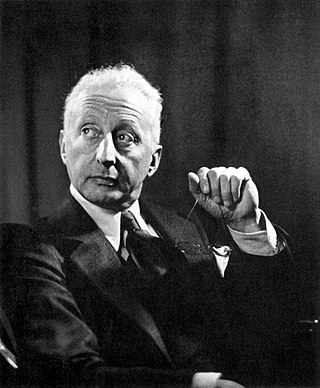
Jerome David Kern was an American composer of musical theatre and popular music. One of the most important American theatre composers of the early 20th century, he wrote more than 700 songs, used in over 100 stage works, including such classics as "Ol' Man River", "Can't Help Lovin' Dat Man", "A Fine Romance", "Smoke Gets in Your Eyes", "The Song Is You", "All the Things You Are", "The Way You Look Tonight" and "Long Ago ". He collaborated with many of the leading librettists and lyricists of his era, including George Grossmith Jr., Guy Bolton, P. G. Wodehouse, Otto Harbach, Oscar Hammerstein II, Dorothy Fields, Johnny Mercer, Ira Gershwin and Yip Harburg.

Musical theatre is a form of theatrical performance that combines songs, spoken dialogue, acting and dance. The story and emotional content of a musical – humor, pathos, love, anger – are communicated through words, music, movement and technical aspects of the entertainment as an integrated whole. Although musical theatre overlaps with other theatrical forms like opera and dance, it may be distinguished by the equal importance given to the music as compared with the dialogue, movement and other elements. Since the early 20th century, musical theatre stage works have generally been called, simply, musicals.

Richard Charles Rodgers was an American composer who worked primarily in musical theater. With 43 Broadway musicals and over 900 songs to his credit, Rodgers was one of the most well-known American composers of the 20th century, and his compositions had a significant influence on popular music.

Otto Abels Harbach, born Otto Abels Hauerbach was an American lyricist and librettist of nearly 50 musical comedies and operettas. Harbach collaborated as lyricist or librettist with many of the leading Broadway composers of the early 20th century, including Jerome Kern, Louis Hirsch, Herbert Stothart, Vincent Youmans, George Gershwin, and Sigmund Romberg. Harbach believed that music, lyrics, and story should be closely connected, and, as Oscar Hammerstein II's mentor, he encouraged Hammerstein to write musicals in this manner. Harbach is considered one of the first great Broadway lyricists, and he helped raise the status of the lyricist in an age more concerned with music, spectacle, and stars. Some of his more famous lyrics are "Smoke Gets in Your Eyes", "Indian Love Call" and "Cuddle up a Little Closer, Lovey Mine".

Rodgers and Hammerstein was a theater-writing team of composer Richard Rodgers (1902–1979) and lyricist-dramatist Oscar Hammerstein II (1895–1960), who together created a series of innovative and influential American musicals. Their musical theater writing partnership has been called the greatest of the 20th century.

Sigmund Romberg was a Hungarian-born American composer. He is best known for his musicals and operettas, particularly The Student Prince (1924), The Desert Song (1926) and The New Moon (1928).
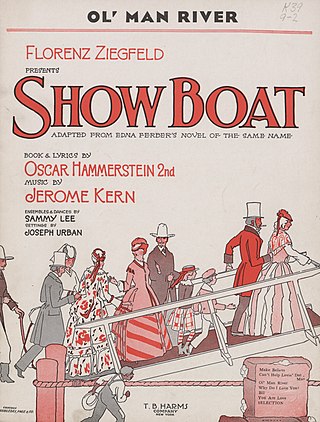
Show Boat is a musical with music by Jerome Kern and book and lyrics by Oscar Hammerstein II. It is based on Edna Ferber's best-selling 1926 novel of the same name. The musical follows the lives of the performers, stagehands and dock workers on the Cotton Blossom, a Mississippi River show boat, over 40 years from 1887 to 1927. Its themes include racial prejudice and tragic, enduring love. The musical contributed such classic songs as "Ol' Man River", "Make Believe", and "Can't Help Lovin' Dat Man".
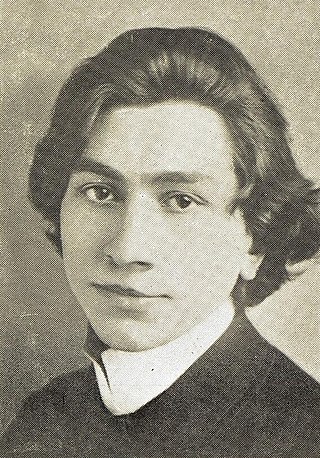
Charles Rudolf Friml was a Czech-born composer of operettas, musicals, songs and piano pieces, as well as a pianist. After musical training and a brief performing career in his native Prague, Friml moved to the United States, where he became a composer. His best-known works are Rose-Marie and The Vagabond King, each of which enjoyed success on Broadway and in London and were adapted for film.

Robert Russell Bennett was an American composer and arranger, best known for his orchestration of many well-known Broadway and Hollywood musicals by other composers such as Irving Berlin, George Gershwin, Jerome Kern, Cole Porter, and Richard Rodgers.
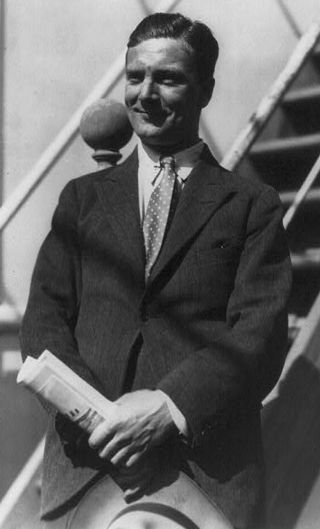
Dennis King was an English actor and singer.
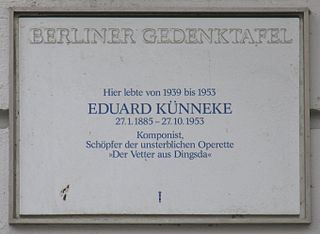
Eduard Künneke was a German composer notable for his operettas, operas, theatre music and some orchestral works.

John Boles was an American singer and actor best known for playing Victor Moritz in the 1931 film Frankenstein.

Orville Harrold was an American operatic tenor and musical theatre actor. He began his career in 1906 as a performer in operettas in New York City, and was also seen during his early career in cabaret, musical theatre, and vaudeville performances. With the aid of Oscar Hammerstein I, he branched out into opera in 1910 as a leading tenor with Hammerstein's opera houses in New York City and Philadelphia. While his career from this point on primarily consisted of opera performances, he periodically returned to operetta and musical theatre throughout his career. He notably created the role of Captain Dick Warrington in the world premiere of Victor Herbert's operetta Naughty Marietta in November 1910.

J. Harold Murray was an American baritone singer and actor. For more than a decade, during the Roaring Twenties and the Depression Thirties, he contributed to the development of musical theater by bridging vaudeville, operetta and the modern American musical. The most popular American songs he introduced on Broadway included "Autumn in New York" ; "Let's Have Another Cup of Coffee" and "Soft Lights and Sweet Music" ; "Rio Rita", "The Kinkajou" and "The Rangers Song" ; and "Mandalay".
"You Are Love" is a song by Jerome Kern and Oscar Hammerstein II from their classic 1927 musical play Show Boat. It is sung twice in the show - first, by Magnolia Hawks, the heroine, and riverboat gambler Gaylord Ravenal when they agree to marry near the end of Act I, and again in the penultimate scene of Act II by Ravenal when he returns to Magnolia after having deserted her for 23 years.

Joseph Bridger Cawthorn was an American stage and film comic actor.
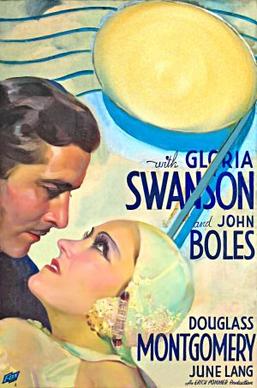
Music in the Air is a 1934 American romantic comedy musical film based on Jerome Kern and Oscar Hammerstein II's Broadway musical of the same name. It was part of the popular subgenre of operetta films made during the era. The film was a commercial failure on its release, losing $389,000. This was the worst performing release by Fox Film that year.

Development of musical theatre refers to the historical development of theatrical performance combined with music that culminated in the integrated form of modern musical theatre that combines songs, spoken dialogue, acting and dance. Although music has been a part of dramatic presentations since ancient times, modern Western musical theatre developed from several lines of antecedents that evolved over several centuries through the 18th century when the Ballad Opera and pantomime emerged in England and its colonies as the most popular forms of musical entertainment.
Sammy Lee, born Samuel Levy, was an American choreographer, dancer, and producer who worked mainly on Broadway and for 20th Century Fox film corporation in Hollywood.
Nancy McCord was an American soprano and actress who had an active career in opera, musical theatre, and vaudeville during the 1920s, 1930s and early 1940s. She appeared in operettas and musicals on Broadway and in operas with several American companies, including the St. Louis Municipal Opera and the Metropolitan Opera. Her repertoire consisted mainly of roles from light opera and operettas. She is best remembered for creating the roles of Marie-Baroness von Schlewitz in the original production of Oscar Hammerstein II and Sigmund Romberg's May Wine (1935); and Mary Stone in the world premiere of Douglas Moore's The Devil and Daniel Webster (1939). She also performed leading roles in the United States premieres of two operettas: Franz Lehár's The Land of Smiles and Robert Stolz's Venus in Seide.

















